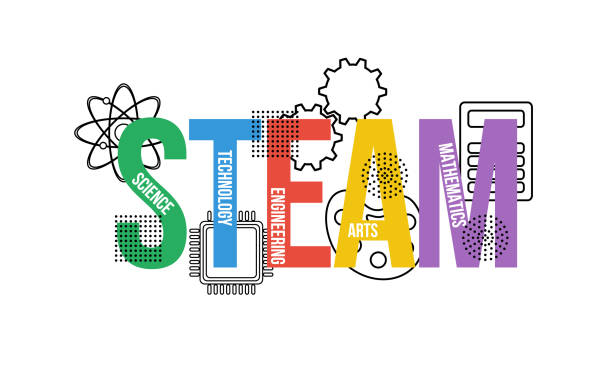
The Future of Finance – What You Need to Know
Posted April 28, 2022, 10:00 am by
What You Need to Know About the Future of Finance
Are you interested in a career in finance? Want to know what the future of finance looks like?
Traditionally, finance has attracted some of the sharpest minds coming out of college and has provided a great opportunity for hard workers and fast learners to earn a great salary early on while also providing limitless growth potential.
Like almost every industry, rapidly accelerating technology is changing the landscape as well as the skills needed in the financial world. In years past, networking skills, salesmanship, and sometimes even a good golf game were prerequisites for the job. Looking ahead, those with vastly different skill sets will often be the ones winning the finance game.

The future of finance rests in changing technology. Business acumen and solid communication skills will probably never be out of fashion, but tomorrow’s finance leaders will be more technology wizards than the stuffy suit wearers of the past.
You have probably already seen some of the changes already. Touchless payments are one small example of a new technology that has improved the finance industry. It may seem like just a gimmick, but that simple wave of your debit card instead of swiping the magnetic strip has already drastically cut down the issuing bank’s exposure to fraud and theft.
That’s just scratching the service though – let’s look at what else is coming to the finance industry, and the skills that will be in demand in the 21st century.
This article was originally published in TeenLife’s 2022 Guide to Your Future in Business. To learn all about the future of finance and how to jumpstart a career in business, download this brand new guide for free today!
1. Neo Banks

Neo Bank is the term used to describe a new class of bank that exists solely on line. These banks have no physical branches and customers access their accounts usually through a smartphone app. While this may seem like only a convenience, in many developing markets throughout the globe, traditional banks have yet to find a way to provide value to their customers like they do in the developed world.
Nubank in Brazil is one such example of these banks. Nubank was founded by a Stanford engineering grad who spent the first decade of his life amidst the drug wars in Medellin, Colombia. While in grad school he was recruited by a venture capital firm to scout Brazil for potential startup investment opportunities. He couldn’t find any because they were all hampered by Brazil’s lousy banking system, and thus his idea was born.
For the tech savvy and entrepreneurial minded finance grad, neo banks offer a once in a generation opportunity.
2. Cryptocurrency

Cryptocurrency is also shaking up the finance world. In just a few short years it has gone from being mostly ignored by the mainstream financial institutions to being embraced by the big banks such as J.P. Morgan and Goldman Sachs, and even getting their own ticker on CNBC.
Much like the neo banks, cryptocurrency opens up the same opportunities that once were only offered to the wealthy to everyone. Crypto reduces friction, increases efficiency, eliminates fraud and theft and has the potential to democratize finance for all.
The promise has not been yet fully realized however, and a new generation of talent is needed to fully usher in the next era of finance.
3. Blockchain and Smart Contracts

Blockchain is the underlying technology that powers cryptocurrencies, but there are also numerous other applications in finance. Non Fungible Tokens (NFTs) have had their moment in the last year or so, but mostly attached to digital art.
The same framework will be coming to finance in the near future in the form of smart contracts that automatically execute when predetermined conditions are met. For example, the clunky and time consuming closing meetings your parents probably had to sit through with their real estate agent and banker to finalize the purchase of a home will be replaced by a sleep smart contract that saves time, increases efficiency and cuts costs for everyone.
4. Artificial Intelligence

Self driving cars are what usually comes to mind first when thinking about artificial intelligence, but their biggest contribution may actually end up being in the finance world.
Both the financial advisors and stock traders of tomorrow will be using A.I. more than the traditional tools of their trade. Goldman Sachs already has a division of A.I. powered stock traders and many firms are switching to robo advisors to service their clients. Again, there is enormous potential to build an extremely lucrative career at the intersection of A.I. and finance.
5. Integrated Payments and Imbedded FinTech

In the future, many financial products will not be offered as stand alone solutions, but will be integrated within other products and services. We have already seen the beginnings of this phenomenon with the advent of services such as Apple Pay Cash and payments within apps such as Facebook.
The future is going to involve an even more seamless experience between finance and the goods and services we use everyday. Many companies and other institutions are even developing their own cryptocurrency coin, including one backed by Apple co-founder Steve Wozniak.
Woz’s coin is related to making it easier for people to finance energy efficiency projects such as solar and wind power, for example, which as we will see next offers yet another spectacular opportunity.
6. ESG Investing

ESG stands for Environmental, Social and Governance. Investors are increasingly becoming much more aware of what they are investing in and avoiding corporations and companies that do not align with their own personal values.
ESG metrics are not part of the required reporting by publicly traded companies, but investors from major institutions to everyday people with a 401k are demanding such transparency. As issues such as climate change and human rights become more and more salient, investors will demand more and more ESG related compliance.
Those interested in social justice will have an opportunity to exact massive change in the financial world that has not been available before.
The Future of Finance: Are You Ready?
This article has barely scratched the surface of what is coming to the finance industry and the opportunities it will make available to young talent in the next few decades. The future of finance will be all about using technology to do the job in a much safer, cleaner and efficient manner. If you are a hard worker and a problem solver, you may want to consider a career in finance.
Blog Categories
- Career Advice
- College Admissions
- Colleges & Universities
- Financial Aid and Scholarships
- For Counselors
- For Parents
- For Students
- Gap Years
- Mental Health and Wellness
- Online Learning
- Performing and Visual Arts
- STEM Majors and More
- Summer Programs
- Teen Volunteering
- Trade & Vocational Schools
- Tutoring & Test Prep

Organization with listings on TeenLife? Login here
Register for Free
We’re here to help you find teen-centered academic and enrichment opportunities that you never knew existed. By creating an account, you will be able to save your favorites, request information via pre-populated contact forms, and submit reviews. We will also be able to tailor our communications to your stated interests and preferences.
Forgot Password
"*" indicates required fields








